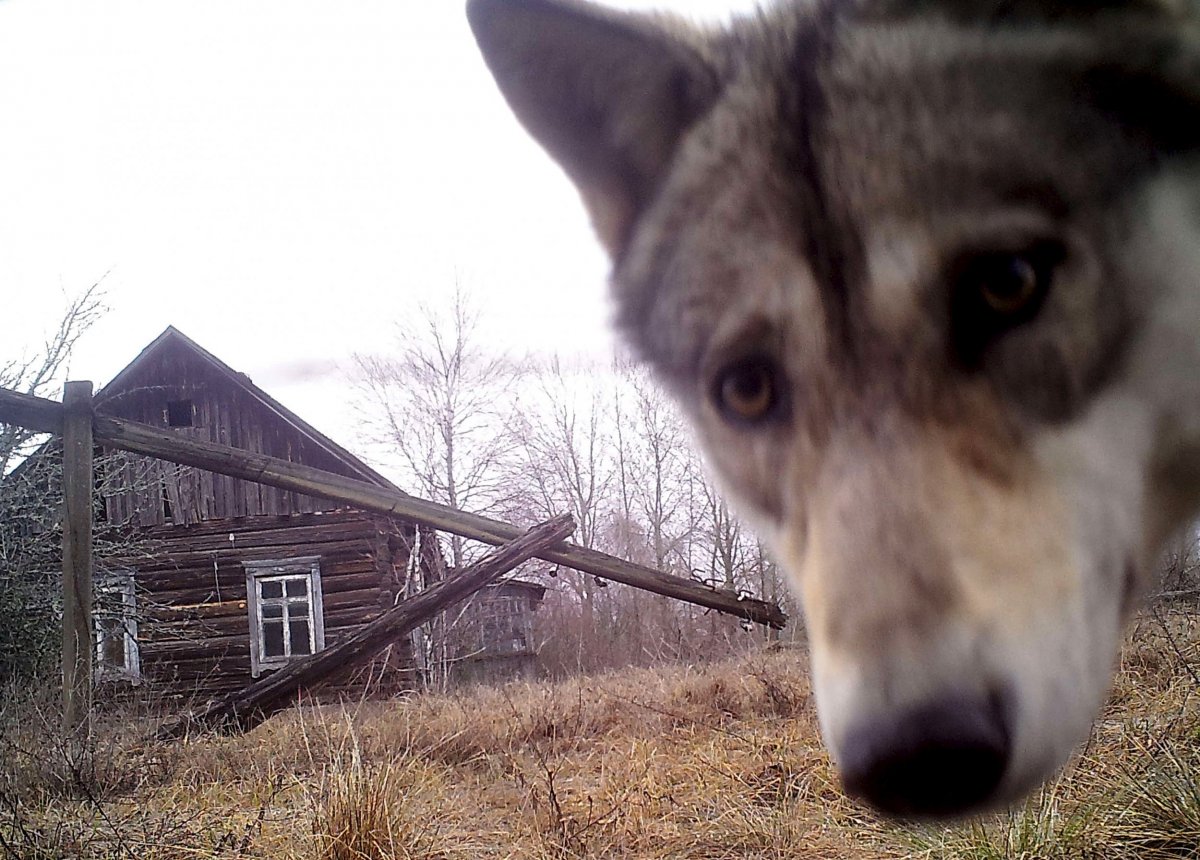Humans still aren't allowed to live in the exclusion zone of Chernobyl, where a nuclear reactor exploded in 1986. Although the radioactivity is dangerous for humans and animals alike, the lack of humans has given some animals an opportunity to thrive.
Wolves in the 2,672 square mile Chernobyl Exclusion Zone in Belarus and Ukraine have adapted surprisingly well to their new human-less existence, despite the threat of radioactivity, a study in the European Journal of Wildlife Research found. They have repopulated the area quickly, enjoying a healthy ecosystem, abundant prey and no humans to shoot them.

Some humans are allowed into the area on a limited basis, such as for tourism and research purposes. The researchers involved in the study fitted 14 gray wolves in the zone with GPS collars to track where they went. They found that the 13 adult wolves stayed close to home, but the one juvenile traveled far away. By the time the GPS collar malfunctioned, that wolf was already 186 miles outside the Exclusion Zone.
After the GPS collar on the juvenile wolf from the Exclusion Zone malfunctioned, scientists were not able to continue tracking it to see if it returned to the place it was from. If not, this animal's migration could indicate that the zone is a refuge for wildlife that spills over to nearby areas, increasing biodiversity for miles.
Environmental scientists in the past have found that, for wild animals, the negative effect of radioactivity pales in comparison to the positive effect of living without humans. In a study in the journal Environmental Toxicology and Chemistry, one team of scientists called the area " a wildlife preserve."
The activity and existence of even well-meaning humans have been known to be a detriment to wildlife, and wolves are famously at odds with humans across the world. At one time, millions of wolves roamed North America. But as colonists arrived, they brought with them a fear and distrust of wolves and other predators, launching considerable eradication efforts on the animals. The effort was wildly successful, and today wolves are federally protected under the Endangered Species Act. However, the U.S. agency Wildlife Services killed 357 wolves in 2017, meaning the war isn't over.
Uncommon Knowledge
Newsweek is committed to challenging conventional wisdom and finding connections in the search for common ground.
Newsweek is committed to challenging conventional wisdom and finding connections in the search for common ground.
About the writer
Kristin is a science journalist in New York who has lived in DC, Boston, LA, and the SF Bay Area. ... Read more
To read how Newsweek uses AI as a newsroom tool, Click here.








